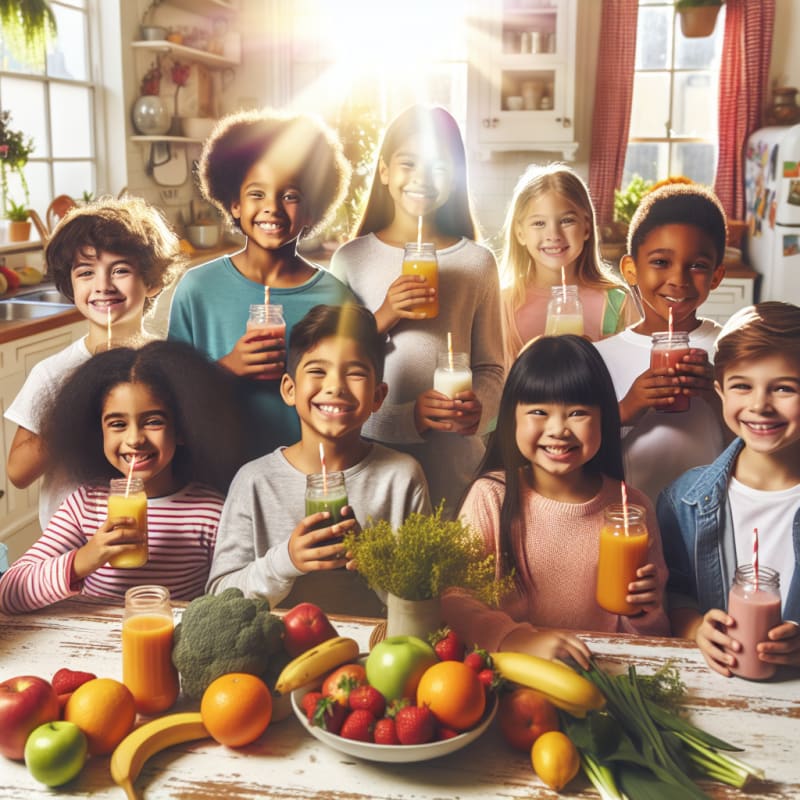Can Kids Safely Eat Yakult? Lactose, FODMAPs, Allergies, and Global Ingredient Insights
Understanding the safety of Yakult for children is vital for parents navigating allergies, lactose intolerance, and FODMAP sensitivities. This article examines scientific evidence, international regulations, and practical tools for informed choices.
Introduction: Why Ingredient Awareness Matters for Families
Modern parents face a complex landscape when selecting foods for their children. With rising rates of allergies, lactose intolerance, and digestive sensitivities, the question can kids safely eat Yakult? is more relevant than ever. This article provides a comprehensive, evidence-based analysis for families, referencing scientific research, regulatory standards, and innovative tools like Food Scan Genius to empower informed decisions.
What Is Yakult? Ingredients and Nutritional Profile
| Ingredient | Purpose | Allergy/FODMAP Note |
|---|---|---|
| Skimmed Milk | Base for fermentation | Contains lactose |
| Glucose | Sweetener | High-FODMAP |
| Live Lactobacillus casei Shirota | Probiotic strain | Generally safe |
| Flavourings | Taste enhancement | Check for allergens |
| Water | Solvent | Safe |
Yakult is a fermented dairy drink containing the probiotic Lactobacillus casei Shirota. Its nutritional profile includes approximately 50 kcal per bottle, with 11g sugar and 1g protein. While marketed as beneficial for gut health, parents must consider lactose, FODMAPs, and potential allergens.
Can Kids Safely Eat Yakult? Scientific Evidence and Health Considerations
Probiotics and Children: What Does Research Say?
- Probiotics like those in Yakult have shown benefits for digestive health in children, including reduced risk of diarrhea and improved immune response (PubMed).
- The FDA recognizes probiotics as generally safe, but does not regulate specific health claims for children.
- The EFSA in Europe has not authorized health claims for probiotics, emphasizing the need for caution and evidence.
Lactose Intolerance: Risks and Solutions
Yakult contains lactose, which can cause digestive discomfort in children with lactose intolerance. Symptoms may include bloating, gas, and abdominal pain. According to the FDA, lactose intolerance affects up to 65% of the global population, with higher rates in certain ethnic groups.
- Tip: Parents should check ingredient labels and consider lactose-free alternatives for sensitive children.
FODMAPs and Allergies: What Parents Need to Know
Yakult contains glucose and milk, both high-FODMAP ingredients. Children with irritable bowel syndrome (IBS) or FODMAP sensitivities may experience symptoms. Allergic reactions to milk proteins are rare but serious, requiring strict avoidance.
- Always check for hidden allergens in flavorings and consult a pediatrician for personalized advice.
International Ingredient Labeling: US vs. EU Standards
| Region | Regulatory Authority | Labeling Requirements |
|---|---|---|
| United States | FDA | Mandatory allergen disclosure; less stringent on probiotics |
| European Union | EFSA | Stricter rules on health claims; comprehensive allergen labeling |
Ingredient lists and allergen warnings vary by region. In the US, the FDA mandates clear labeling of milk and other major allergens. The EFSA enforces rigorous standards in Europe, including restrictions on probiotic health claims. Parents should compare labels when purchasing Yakult abroad.
Yakult in the News: Recent Developments and Parental Concerns
- The New York Times recently highlighted parental confusion over probiotic drinks and childhood gut health.
- BBC News reported on regulatory debates about probiotic safety and labeling in the EU.
- Forbes discussed the rise of probiotic beverages and the importance of ingredient transparency for families.
These articles underscore the need for vigilance and informed choices when introducing new foods to children.
How Food Scan Genius Empowers Parents
Scan for Allergens, Lactose, FODMAPs, and More
- Food Scan Genius is an app designed to help users instantly identify allergens, lactose, and FODMAPs in packaged foods.
- Parents can scan Yakult and similar products to receive personalized safety alerts and ingredient breakdowns.
- The app covers US and EU labeling laws, ensuring compliance and peace of mind.
User Testimonial: “Food Scan Genius made shopping for my lactose-intolerant daughter so much easier. I scanned Yakult and instantly saw the lactose warning. Highly recommend for all parents!” — Maria, New York
Download Food Scan Genius today to make smarter, safer food choices for your family.
Frequently Asked Questions: Can Kids Safely Eat Yakult?
- Is Yakult safe for children with lactose intolerance?
- No, Yakult contains lactose and may cause symptoms in lactose-intolerant children. Consider lactose-free alternatives.
- Does Yakult contain high-FODMAP ingredients?
- Yes, Yakult contains glucose and milk, which are high-FODMAP and may trigger digestive symptoms in sensitive children.
- Are there allergy risks with Yakult?
- Yakult contains milk proteins and may include flavorings with hidden allergens. Always check the label and consult your pediatrician.
- How do US and EU regulations differ?
- The FDA in the US requires clear allergen labeling; the EFSA in Europe enforces stricter health claim regulations and comprehensive labeling.
- Can Food Scan Genius help me check Yakult ingredients?
- Yes, Food Scan Genius scans Yakult and similar products for allergens, lactose, and FODMAPs, providing instant safety information.
Conclusion: Making Informed Choices for Children’s Health
In summary, the question can kids safely eat Yakult? depends on individual health profiles, allergies, and digestive sensitivities. Scientific evidence supports probiotic benefits, but lactose, FODMAPs, and allergens require careful attention. International regulations differ, making label scrutiny essential for global families.
By leveraging tools like Food Scan Genius, parents can confidently navigate ingredient lists and make safe, healthy choices for their children. Understanding what goes into food is the first step toward a healthier future.





